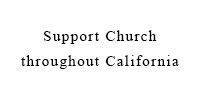August 25, 2025
Written by Mike Banh, Associate Professional Clinical Counselor/Associate Marriage & Family Therapist

One of the most difficult uncomfortable emotions to feel and experience is shame. Shame is universal and often keeps us from living life more fully. Shame is the critical inner voice that judges us at every turn. It tells us we’re not enough when we fall short or experience disappointment. It tells us we’re too much when we feel needy or like a burden to others. Shame shakes our confidence and undermines our capabilities.
Often, when we feel shame, our first instinct is to cover up and hide, or worse, shame ourselves for feeling shame. We can cover up through the use of humor, blame shifting, or doubling down on our perfectionistic efforts. We hide when we run away, isolate ourselves, or put up a front. And when we shame ourselves for feeling shame, it’s similar to being caught in quicksand; the harder we struggle, the worse it gets.
The antidote to shame is often vulnerability met with acceptance and compassion. Resisting the urge to cover up and openly acknowledging our shame with ourselves along with trusted people reduces shame’s grip on us. But being vulnerable is only part of it. Being accepted and receiving compassion are key to alleviating shame. It’s important that we experience acceptance and compassion from others, but maybe even more important to show it ourselves.
Sometimes, it’s hard to find people we can trust to let our guard down with. Acceptance and compassion can be hard to come by. We as human beings are prone to judge others and ourselves. When we’re at our limits, we can turn to God who has no limits and never fails. His acceptance and compassion are unconditional because it’s intrinsic to who he is. We can trust him and be vulnerable about all the things we try to hide because he is a compassionate and gracious God who will never stop loving us.





